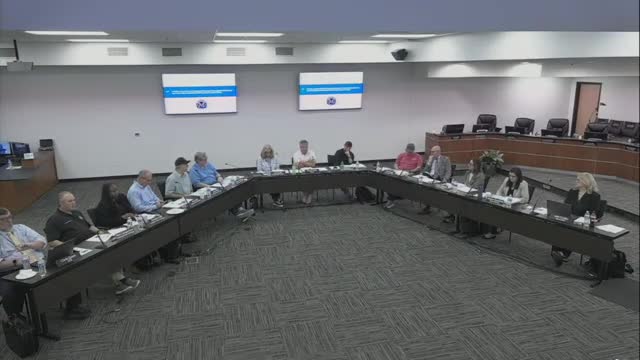Article not found
This article is no longer available. But don't worry—we've gathered other articles that discuss the same topic.
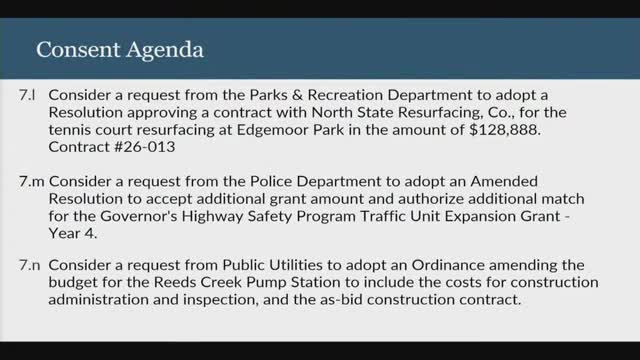
Mooresville staff seek council approval for $8.75 million Reeds Creek pump station contract
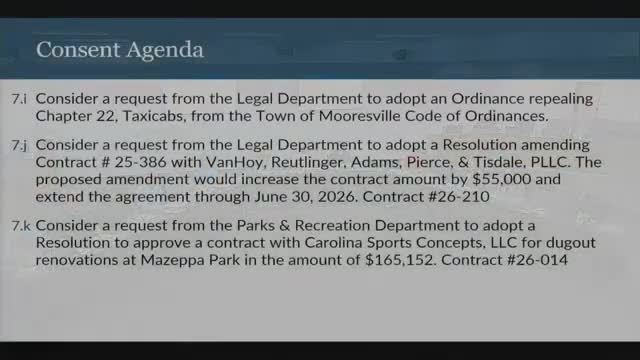
Council staff recommend repeal of town taxi-cab ordinance, citing rideshare regulation at state level
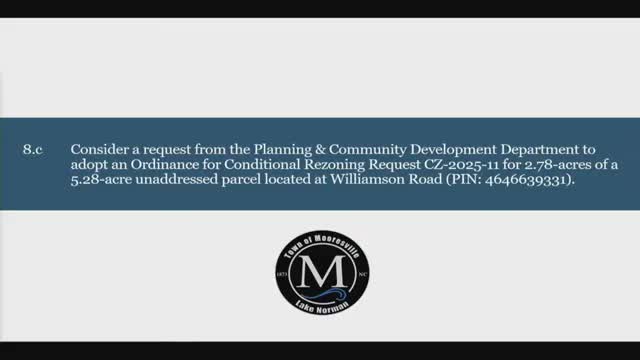
Conditional rezoning pitched for Williamson Road site for 12,000 sq. ft. warehouse; applicant not seeking annexation
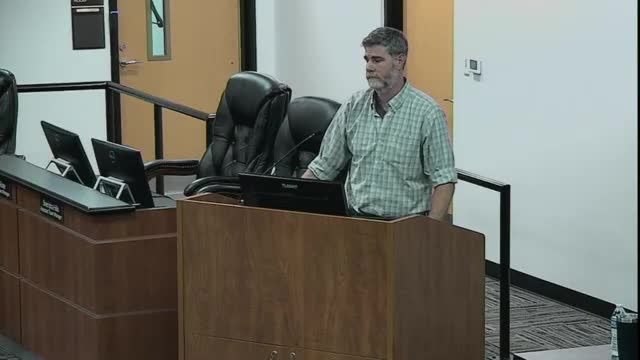
Council to consider voluntary annexation of three Ridge Avenue lots into Mooresville
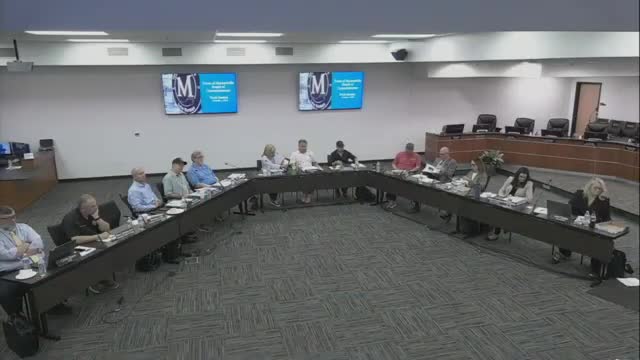
Mooresville Chamber outlines business outreach, membership and pandemic-era support in council briefing
